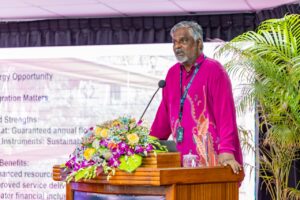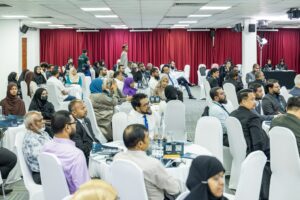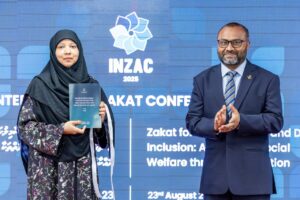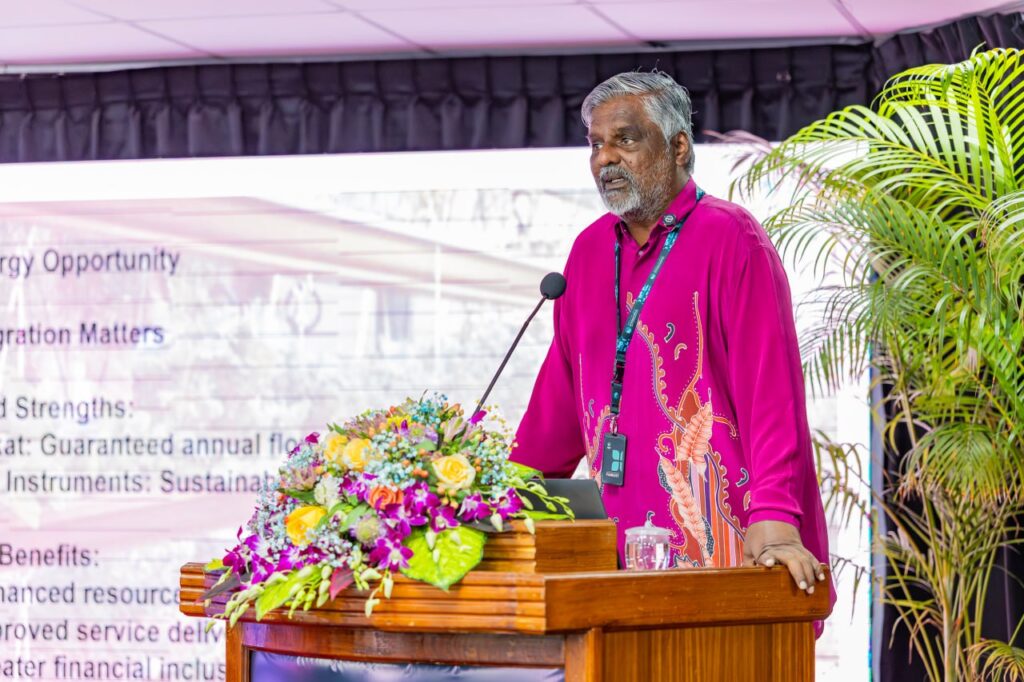Maldives Zakat House recently held a meeting with Prof. Dr. Baharom Abdul Hamid, Professor at INCEIF University, who was in the Maldives as a keynote speaker and panelist at the International Zakat Conference (INZAC) 2025. The discussion focused on strengthening the Nafa Program, a key initiative under the institution’s poverty alleviation efforts.
Prof. Dr. Baharom is an avid researcher with extensive applied Islamic Social Finance (ISF) projects in collaboration with banks, government bodies, and agencies in Malaysia as well as overseas. He has published more than 150 high-impact intellectual contributions, including books, journal articles, and policy papers. He also currently serves as the Vice President of the Asia Pacific Applied Economic Association (APAEA).
During the meeting, Prof. Dr. Baharom suggested placing stronger emphasis on tackling urban poverty, particularly in Malé and Hulhumalé, where living expenses and financial pressures are significantly higher than in other parts of the country. He highlighted those targeted interventions in these communities would create greater social impact and deliver more meaningful outcomes for beneficiaries.
He further stressed the importance of introducing third-party screening and monitoring to strengthen transparency and accountability. Since Malé and Hulhumalé are centrally located, monitoring activities can be more easily carried out, enabling closer supervision and stronger results. Another key point discussed was the value of school visits and outside visits, which would allow the program to better track progress and provide deeper insights into the challenges faced by vulnerable families.
Prof. Dr. Baharom also shared his perspective on the integration of zakat with urban farming initiatives, demonstrating how zakat can be utilized not only for immediate relief but also to build sustainable livelihoods, enhance food security, and promote long-term community empowerment.
Maldives Zakat House remains committed to developing the Nafa Program into a more impactful model of poverty alleviation, ensuring that zakat contributions continue to uplift the most vulnerable segments of society.





